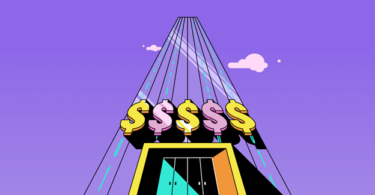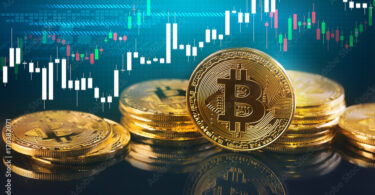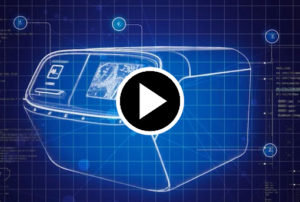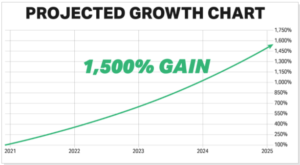Tiny $3 AI Stock Could Make You Rich
Sponsored
Hey, Ross Givens here. You know what Bill Gates says about AI? ”If you invent a breakthrough in artificial intelligence, so machines can learn, that is worth 10 Microsofts.” Darned right! Now that ChatGPT has ignited a firestorm in AI… Some analysts say Mr. Gates was too conservative. That the market opportunity is far, fargreater than 10 Microsofts. So no matter whether you start with $50, $250, or $1,000… NOW is the time to get a piece of the action. And if you move quickly – before the mainstream press gets wind of what's going on – a tiny $3 AI Wonder Stock could jumpstart the kind of carefree life you can only dream about right now. Getting positioned is easy… But you'll need to know its name and ticker symbol. (Which I'm prepared to give you now .) Discover more about The $3 AI Wonder Stock That Could Make You 75X Richer. And here's the great thing… I'll bet not one in 1 in 100,000 investors knows about this scorching opportunity! Just follow my steps to buy the actual stock at the real price of $3 or so. But you'll need to move extremely fast. The price could shoot way up at any time.
Berkshire Hathaway, the sprawling conglomerate that has its hands in various industries, also owns a massive equities portfolio. Given this business is led by the legendary Warren Buffett, it's no surprise that individual investors look at its numerous holdings for investing ideas.
The top positions might get a lot of attention, but it's best not to ignore a company like Mastercard (MA), which currently makes up just 0.5% of the $367 billion stock portfolio. This tiny stake might make the financial stock go underappreciated among investors.
But can Mastercard shares double your money over the next five years? I think it's a possibility, but there's one key deciding factor.
Hard to find any faults
Mastercard had its initial public offering in 2006 at an opening price of $3.90 (adjusted for stock splits). Since then, shares have skyrocketed almost 12,000%, crushing the gains of both the S&P 500 and the Nasdaq Composite by insanely wide margins.
This has been a huge winner in the past thanks to its remarkable fundamental performance. Between 2013 and 2023, revenue and diluted earnings per share (EPS) increased at compound annual rates of 11.7% and 16.6%, respectively. And during this stretch, payment volume soared from $4.1 trillion to $9 trillion last year.
Because Mastercard provides the underlying technological infrastructure that allows for card transactions to be processed between consumers (and their banks) and merchants (and their banks), it has benefited from the ongoing secular trend away from cash and paper-based payments. Helping the company's growth is the globalization of commerce, as well as the rise of online shopping. Even though more developed economies, like the U.S. and countries in Western Europe, have deeper penetration of digital payments, there are still sizable opportunities to expand in emerging markets.
Having a wide economic moat has protected Mastercard's competitive position in the past, particularly from the threat of disruption. And it will continue doing so as we look out five years from now.
This is due to the company's powerful network effects. With billions of its cards accepted at tens of millions of merchant locations worldwide, Mastercard's scale gives it a huge advantage. And as the payments network gets larger, with more cards and places to spend, it continuously becomes more valuable to all stakeholders. This setup means it's virtually impossible to create a competing network from scratch.
Unlike its banking peers, Mastercard doesn't lend money to borrowers. This has made the business incredibly profitable. It reported an operating margin of 55.8% last year, generating $11 billion of free cash flow that is used to fund dividends and share buybacks.
Valuation plays a big role
From a quality perspective, it's difficult to find many companies that are superior to Mastercard. But in order to assess if the stock can double, it's important to consider the current valuation.
Shares trade at a price-to-earnings (P/E) ratio of 38.4, which is cheaper than their trailing-five-year average, but just slightly more expensive than the past 10-year average. Therefore, it might be reasonable to assume that the stock is fairly valued today.
Some bearish investors can argue that shares are overvalued right now. But given the positive attributes I outlined above, it's easy to believe that Mastercard will always carry what looks like a premium valuation.
Assuming diluted EPS can rise at an annualized pace of 15%, a slower rate than what it has produced in the last five years, then shares will likely double by 2029 if the current P/E multiple remains the same. While nothing is certain, I believe this outcome has a good shot at becoming a reality.
Musk: My new robots could be bigger than Tesla
Sponsored
No one can deny Elon Musk is a visionary. But has he finally gone too far? Musk changed the world with Paypal, Tesla, and SpaceX. Not to mention he's the world's richest person. But he's raising quite a few eyebrows these days. He recently introduced his new, humanoid Optimus robots. They'll soon be building Teslas… But that's not all they'll do. Musk also mentioned these AI-brained robots… Could serve as “romantic companions” for lonely people. (Except the words he used were more explicit.) Is this the future of AI? No one should bet against Musk. See the shocking future of AI here.
P.S. Genius investor James Altucher is predicting between now and March 8, 2024, a new generation of AI will create a brief “wealth window” in America. It could make crypto look like pocket change. He's sharing full details HERE.











